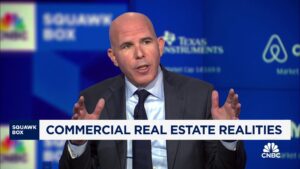We did the interview in his man cave, where he likes to serve vodka and talk about the world with his friends. There’s a cozy circle of blue chairs and a sofa and a plywood coffee table Penn made. The walls are chockablock with pictures and letters, including one from his friend Marlon Brando. There’s also a photo of Brando marching for civil rights.
The beach house is not your typical professionally decorated movie star manse. Penn has hung up photos of friends and his kids, actors Dylan, 33, and Hopper, 30, with his ex-wife Robin Wright; watercolors by Jack Nicholson; medals that belonged to his dad, Leo Penn, who flew 37 missions in World War II and got shot down twice; and paintings by his mother, Eileen, an artist and actress, and Hopper. He has a series of head shots above the fireplace of his brother Chris Penn, the actor, who died in 2006. There are vintage posters of the movies of his father, an actor and director who was blacklisted (turned in by Clifford Odets).
And there’s a picture of Andriy Pilshchikov, known as “Juice” and the “Ghost of Kyiv,” a member of a unit defending Ukraine from the air. The charismatic pilot, who was killed in a training accident, was featured in Penn’s documentary.
There are several clocks set to different times around the world, including Ukrainian time.
The room is wreathed in smoke, as Penn alternates between chain-smoking American Spirits and noodling around his mouth with a dental pick. In the bathroom, he displays pictures of his friends smoking, including Dennis Hopper and Harry Dean Stanton and, justifying his cigarette addiction, the Charles Bukowski quote “Find what you love and let it kill you.”
The peppery Penn knows a lot of people don’t like him “out of the gate.” He also knows people do not want to be lectured on global ills — and hectored for donations — by celebrities. He knows a lot of fans and fellow artists think he’s a show-off and he should just focus on fulfilling his early promise as one of the great American actors and hone his talent as a director, and stop dancing on the world stage with leaders, dictators (Hugo Chávez and Raúl Castro) and even one infamous drug lord (El Chapo, whom he interviewed for Rolling Stone in a wild adventure Penn later conceded was a failure because it failed to spark a conversation on America’s drug policies).


